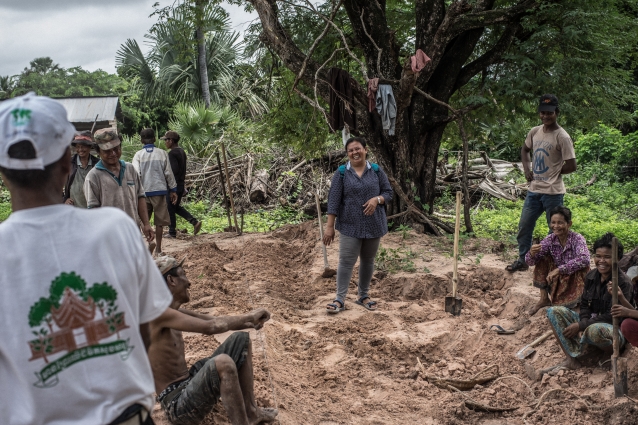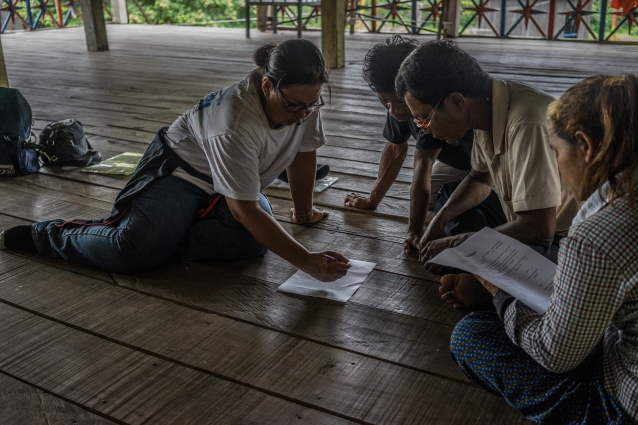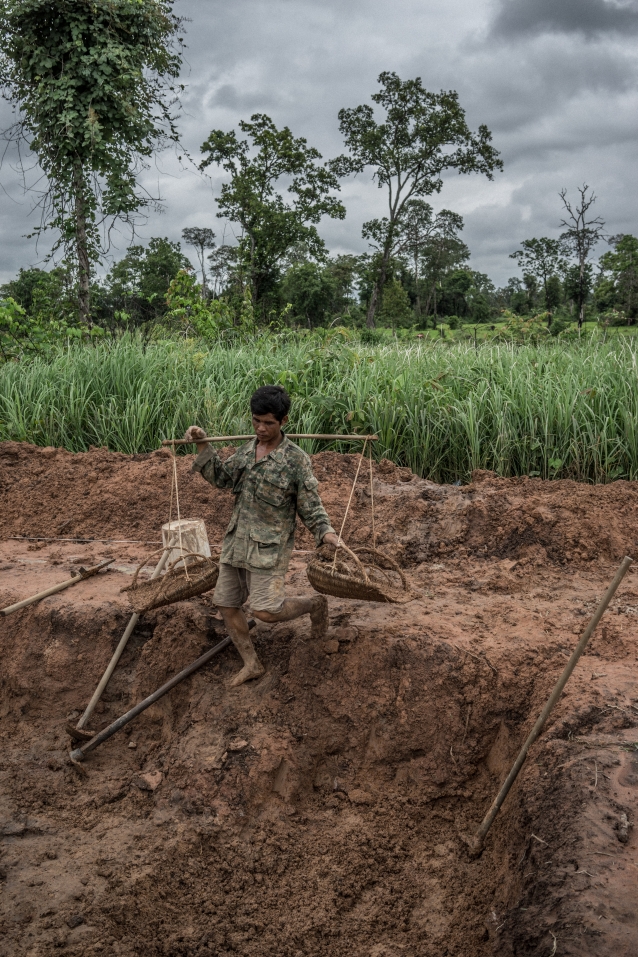 Guy Calaf pour Action contre la Faim
Guy Calaf pour Action contre la Faim
Headline
DIGGING FOR OPPORTUNITY IN CAMBODIA
 Guy Calaf pour Action contre la Faim
Guy Calaf pour Action contre la Faim
For villagers in Cambodia’s Preah Vihear province, rain can make the difference between surviving and thriving: too much rain causes flooding, but too little causes drought. One bad storm—or one dry spell—can destabilize crops, food supplies, and local markets and wipe out a family’s ability to produce income and food to last them through the year, putting their children at risk of hunger.
Working with local community leaders, Action Against Hunger helped to identify a few simple yet effective solutions to help families minimize the damaging impact of unpredictable rainfall. One of these ideas: new freshwater ponds, built to collect and store water for bathing and growing fruits and vegetables—reliable water sources, no matter the weather.
Kannika Kang, a Community Mobilization Expert with Action Against Hunger, is working with communities to build dozens of new ponds in the villages in Preah Vihear.

Early each morning, Kannika travels to nearby villages, packing her meals and all materials she needs for work. Occasionally, when she needs to visit villages too far away from Preah Vihear City for just a day trip, she stays overnight in the communities, making each new place feels like home: “I sleep at the houses of our target villagers, and I feel I belong to them as a family.”
In her initial assessments, Kannika helped to identify the best locations for new ponds, secure approvals and permission from local leaders, select program participants based on income level, and teach villagers about the project and the many benefits the ponds could offer their lives and livelihoods.
Despite challenges, Kannika knows that her efforts will pay off: “It is not easy to convince villagers to dig the ponds. I spent a lot of time explaining the pond’s benefits—bathing, watering plants and crops—and when they understand, they agree,” she says.

With hard work, and with careful communication and education, Kannika has worked with 127 families to dig ponds. The communities contribute the labor to build the ponds, and Action Against Hunger provides them with supplies of rice in exchange for their efforts. (The pond itself is, of course, the ultimate benefit of their work.) Each pond is dug to fit certain requirements: space, location, and local regulations are all important factors. Kannika helps makes sure the requirements are met, and that all the builders get the tools and support they need.
Torn Tep, one of the beneficiaries in the village of Tmat Poeuy, explained: “Action Against Hunger showed me the benefits of having a pond, and provided tools for digging the pond. I will have water for my family, and so will the neighbors, and I can also use water for my crops, vegetables and other plants.”

This program is made possible through Food for Asset, a multi-sectoral initiative funded by Google and managed and implemented by Action Against Hunger, in partnership with the World Food Programme and local authorities. The program improves livelihoods and incomes of villagers in Choam Khsan District through pond development and crop production, reaching more than 252 households across 12 villages in three communes.

